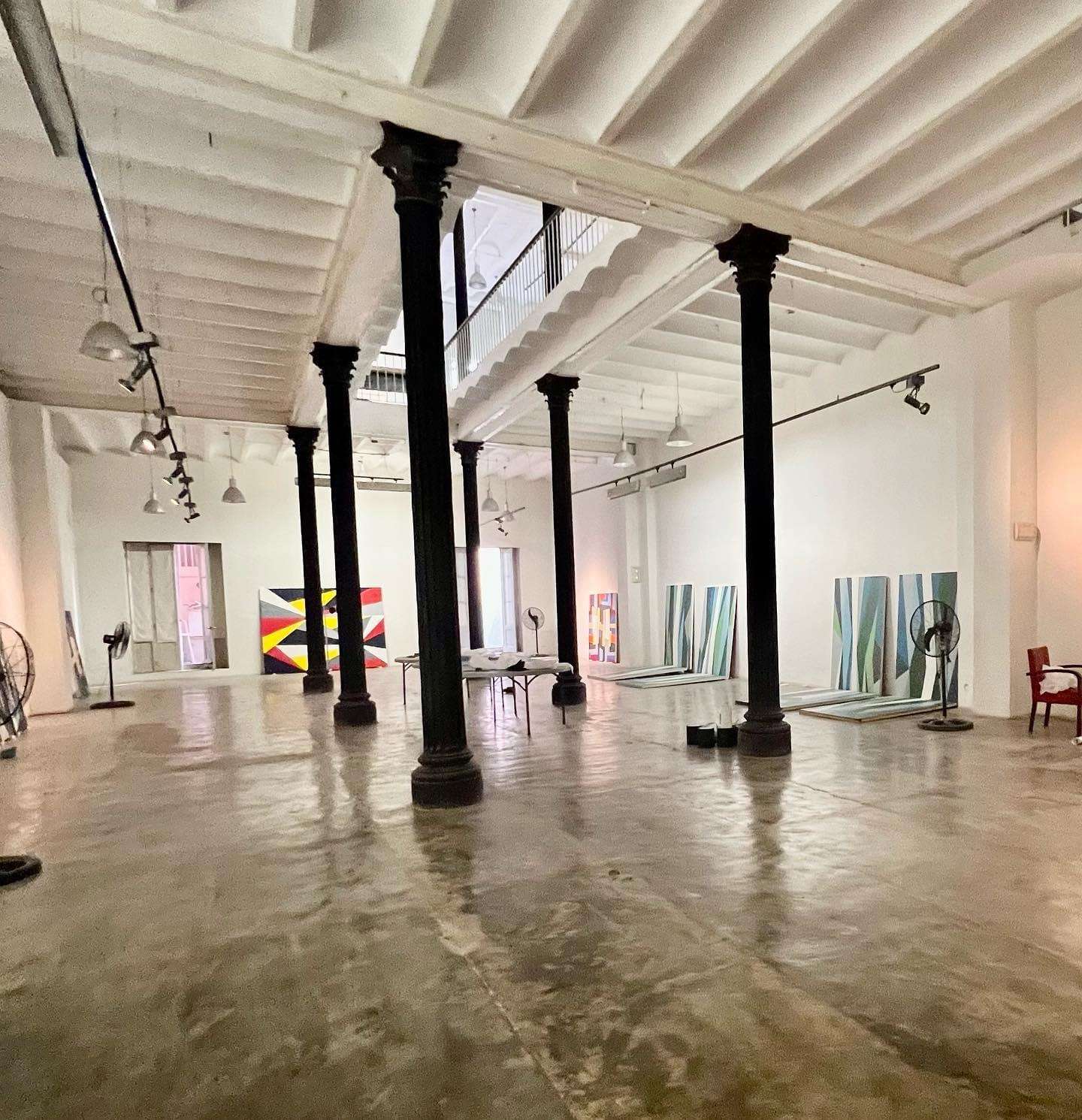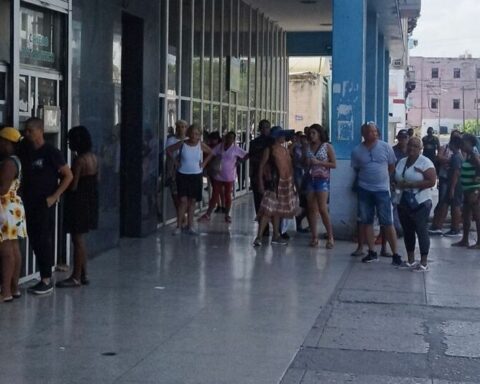The Ticket application, launched in Cuba in December 2022 to facilitate the electronic processing of appointments both in public institutions and in private businesses, customers and even one of its creators, Jesús Daniel Saura Díaz, are increasingly disliked.
A few days ago, the latter expressed one of the harshest criticisms, when rating the tooldeveloped by the state-owned Xetid (Defense Information Technology Company), as “the monster I helped create”.
The young man confesses that today he no longer feels “the same level of satisfaction and pride” that he had when he helped create the tool. In a post on the networks, he explains that the platform “was conceived as a fresh and innovative tool that would contribute to society and that would fulfill its motto It has never been so easy“, with the aim of obtaining entry somewhere, be it a restaurant, a play, a paperwork office or a business. However, this was distorted.
“It was not created with the aim of becoming the new digital supply notebook, nor to rationalize resources, nor to sell combos, much less to sell dollars or fuel, in what head does it fit?”, lashes out the computer scientist, who continues : “Many will say that it gradually adapted to the situation in the country, but I say that if we always adapt to the situation in the country we will never get out of the situation because we will not have the tools that take out“.
In his opinion, the ‘app’ served “unfortunately the misery and scarcity of the Cuban who also never escapes politicization.”
In his opinion, the apps it served “unfortunately to the misery and scarcity of the Cuban who also never escapes politicization.”
One of the examples he gives is that Ticket “should be free for the end user and only charge providers for the service, infrastructure and maintenance”, something that does not happen today. In fact, the most requested services are paid.
This is the case of Aurelio, a young man from Sancti Spíritus, who costs 50 pesos for a three-month license to be in the “virtual store” managed by the application. This allows him to get much cheaper products, such as a bottle of oil at 50 pesos, water at 12 pesos, a kilogram of detergent at 230 pesos, “prices from before”, in his words – unimaginable in the informal market, where inflation prevails–, and without having to spend the night in front of the state warehouses, waiting for the item to be released.
“For me it is quite useful, or it has solved certain problems and obstacles for me,” the young man concedes. “I have many things to do, I don’t have time to watch the virtual stores, when the modules come out, and the application has a functionality that puts you in line and the day you have to buy in the virtual store is your day and you can buy without any problem.
The average waiting time for that is more than a month. Aurelio also uses it to buy a cylinder of liquefied gas – “it solves a lot, you don’t have to queue weeks and weeks” – and for the Cadeca (exchange house), something that is, he says, “a business redondo”: “You go, buy the euros at 120 pesos and sell them abroad at 180, and you earn 5,000 or 6,000 pesos, depending on how the currency is.”
However, it also has criticism: “As an application, it is badly designed. All the services are spread out, one below the other, scrambled, hundreds of services. Supposedly it has a search engine but it does not search for anything.”
Another problem is, once the Ticket takes its turn and the user enters the Waiting Room, it only notifies that it is his turn, with the icon of a little bell, if he enters the tool
Another problem is, once the Ticket takes its turn and the user enters the Waiting Room, it only notifies that it is his turn, with the icon of a little bell, if he enters the tool. “If that day you were entertained and you didn’t look at the application, it’s easy to miss your turn because it doesn’t notify you if you don’t log in,” he says.
Ricardo, a 76-year-old retiree from Havana, believes that despite Ticket, the same corruption and “socialism” that the tool sought to eradicate proliferates. “I went to a notary’s office in El Vedado to carry out a procedure and they told me that they are only serving clients who have made an appointment through that application, but it is evident that there were people passing through, after paying directly to the custodian,” he narrates.
And he continues his complaint: “If you cannot verify that the one who stood in line since dawn is the one who is going to enter the notary’s office and anyone appears saying that they had a turn taken out by Ticket, how can you verify that it is true? The rest of the people who arrive can’t know if it’s true or a trick to get past after paying the employees.”
Not even the Cuban News Agency (ACN), in a note that intended to extol the virtues of the apps, hid the drawbacks it has. “Although customers recognize the value of Ticket for the purchase of MLC [moneda libremente convertible]Not a few question the transparency of the virtual process on social networks, and the time to get the long-awaited shift, at the beginning of days, then weeks and that is already close to three months in some territories, such as Havana, where there are branches with more of five thousand people in the ‘waiting room'”, said the official media, referring to the use of Ticket to take turns in the Cadeca.
The text highlighted that there were 40 Cadeca branches on the island that organized care through the application, which handles an average of 764 daily requests, but also collects “nonconformities.” Specifically, that there are “testimonials on social networks” that report “failures to access the platform or edit user data, criticize the lack of response to their concerns, and some have even complained of not having received the notice to buy, whereupon they were automatically left out of the queue”.
In the Santa Clara Cadeca, which has the largest number of registered customers, the “average” time between one change and another is 273 days, while in San Antonio de los Baños it is 74 days.
The waiting time to perform the operation, details the note, “varies depending on the number of people in the waiting room [el apartado donde queda registrado el turno] and the availability of foreign currency to make the exchange”. Thus, in the Cadeca of Santa Clara, which has the largest number of registered customers, the “average” time between one exchange and another is 273 days, while in the San Antonio de los Baños is 74 days.
In Havana Tribune, where the note was reproduced, user comments were mostly negative. “I have a friend who doesn’t have a cell phone. So, does the lion eat him?” Jorge Luis wrote. “They must expedite sales, waiting up to four months or more is too long,” King Mo requested.
For Ibis Araujo, the application “still has many failures that have not been resolved and Cadeca’s colleagues, despite having this knowledge, are indolent. I think that clients should be protected who, after several months of waiting, lose their turn due to difficulties with the application”. Vladimir González Pupo complains that “before it was free, supposedly to help, and now you have to pay to wait. It seems disrespectful to me.”
Days later, a report in Invader took stock of the implementation of the tool in Ciego de Avila and left in evidence “the convoluted lines”, that is, what does not work. “The story does not allow it to be told from beginning to end in a tone of total satisfaction, when reality, at times, shows that, if we are talking about computerization and integration between institutions, not everything has yet turned out perfectly,” reads the the county newspaper.
He also criticizes the “weak point” of the payment, through EnZona, with three possible subscription plans: 12 pesos for 14 days, 20 for 28 or 50 for three months.
The note lists how the hodgepodge of services managed by Ticket began to expand, for example to notarial appointments or for the sale of liquefied gas at Cupet points of sale.
He also criticizes the “weak point” of the payment, through EnZona, with three possible subscription plans: 12 pesos for 14 days, 20 for 28 or 50 for three months. “The mere fact of having a single payment option is, clearly, a limitation that should be well valued, with a view to future transformations,” says Invasor.
Although the official report praises Ticket’s work in ending the queues, they do not allude to the application to which replaced in that jobGoalkeeper, one of the tools of the so-called “operation fight against choleros” start up in the middle of the coronavirus pandemic. This apps It was used to record which day a customer accessed a store and, thus, warned if he behaved like a reseller. However, neither Portero nor Ticket have so far been effective in avoiding the detours of merchandise in various state stores.
________________________
Collaborate with our work:
The team of 14ymedio He is committed to doing serious journalism that reflects the reality of deep Cuba. Thank you for accompanying us on this long road. We invite you to continue supporting us, but this time becoming a member of our newspaper. Together we can continue transforming journalism in Cuba.








